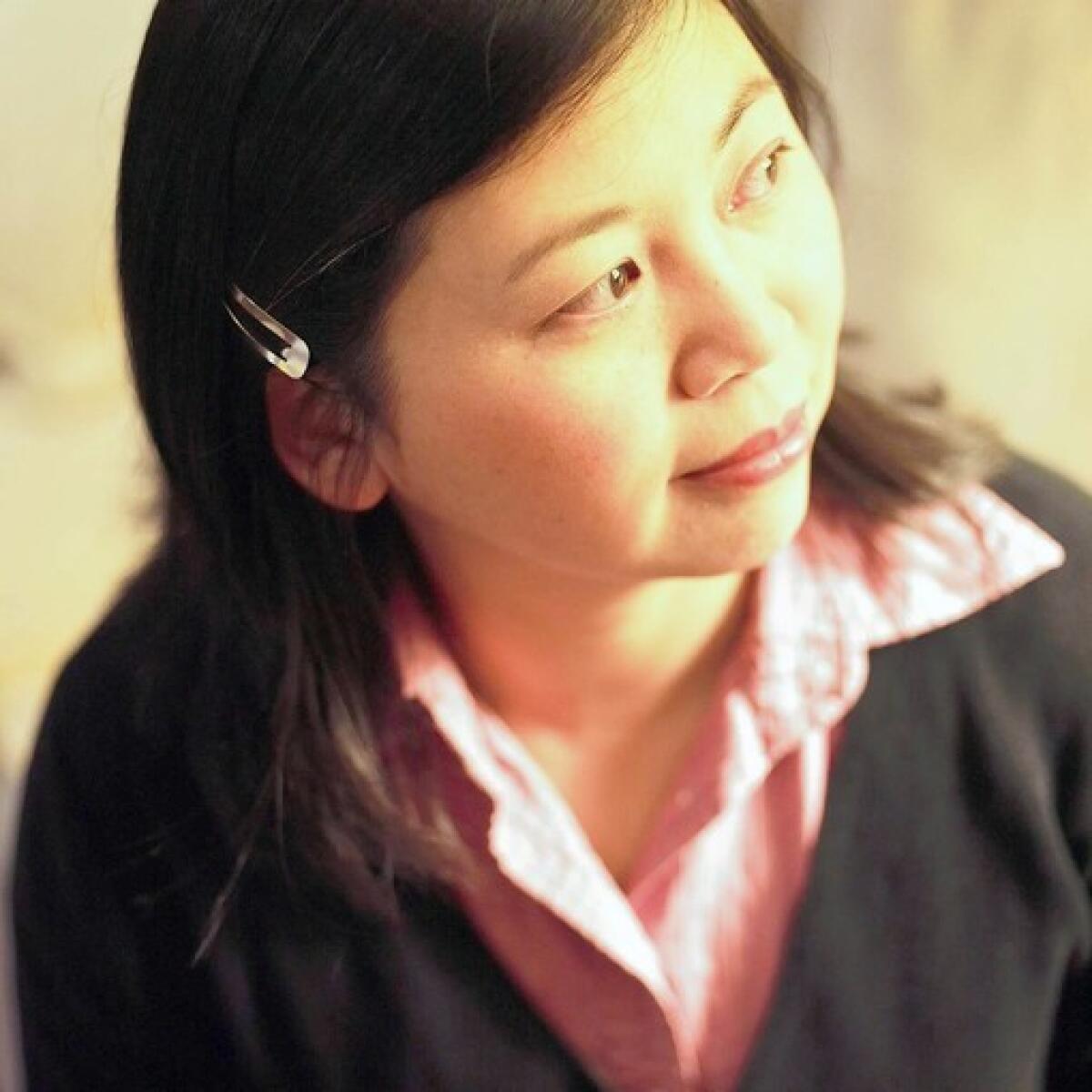Discoveries: ‘Gold Boy, Emerald Girl’ by Yiyun Li

- Share via
Plus ‘At Home With Andre and Simone Weil’ by Sylvie Weil; ‘Framing Innocence’ by Lynn Powell.
Gold Boy, Emerald Girl
Stories
Yiyun Li
Random House: 221 pp., $25
Some books leave you hungry. Perhaps it is the overwhelming loneliness of many of Yiyun Li’s characters, their quiet desperation that makes a reader turn the pages hoping for resolution and redemption. But this is not Disneyland, this is Shanghai. Moyan, looking back on her 41 years, on her childhood with an unhappy mother, her young adulthood in the Chinese army and her lonely life as a mathematics teacher, is every bit as empty as Camus’ stranger. This is Li’s third book. She came to the U.S. from China in 1996 to study immunology, ended up at the Iowa Writers’ Workshop and has since won awards and accolades for her fiction, most recently, a 2010 MacArthur Fellowship (the coveted $500,000 genius grant).These nine stories are written with clarity and confidence — we are in the hands of a writer who knows exactly what she wants to say about the world. Lessons are buried in each of the stories, and yet they never read like fables. In the story “Kindness,” Moyan, uncertain about her provenance, remembers thinking as a child that life is “like a chick refusing to be returned to the eggshell.” “A stranger’s kindness,” she thinks later, “heals our wounds in the end.” “A mother should never be defeated by circumstances,” thinks Mrs. Jin in “The Proprietress,” her own determination shored up by platitudes. Men and women, old and young, circle each other in every story. Flames of passion threaten households; insisting on solitude threatens the community. Loyalty is the highest virtue, but it is not the Confucian kind. The stories are seething with willfulness, resistance and exhaustion. You feel hungry after devouring the nine, as if by eating or reading more you might force a turn in lives lived perilously close to defeat.
At Home With André and Simone Weil
Sylvie Weil, translated from the French by Benjamin Ivry
Northwestern University Press: 180 pp., $24.95
“At home” may be a bit of an overstatement, for Sylvie Weil has struggled all of her life with the brilliance of her father, the eminent mathematician André Weil, and the notoriety of her aunt, Simone Weil. She remembers fragments: the sound of scribbling as her grandparents copied Simone’s notebooks by hand, visions of her long dead aunt in a long white tunnel and of her father, also dead, calling Sylvie on the telephone to say “get me out of here, I’m bored.” It’s possible that powerful minds leave more of a presence when they die — Sylvie must find a way to emerge from under their reputations to assert herself and her own work. Everywhere she turns, people comment on her aunt: the mystic who let herself starve to death, the men and women who want to touch Sylvie’s hair because it is “exactly like hers.” Sylvie worries even as a child that she will not be interesting enough to accompany her father on a walk around the neighborhood. “Being a genius, my father obviously cannot remember where to find the sugar bowl, the silverware, or the coffeepot, nor even the words for each object in question.” It is a heavy legacy. At times, she feels her family is not her own — to read letters about her childhood, she must sit in a room in special collections and sign for them. And yet there is a great deal of humor here — it softens the legacy of genius; it finds the details that a child owns and remembers fondly.
Framing Innocence
A Mother’s Photographs, a Prosecutor’s Zeal, and a Small Town’s Response
Lynn Powell
The New Press: 304 pp., $25.95
This is a horrible story, one of those horrible stories that is happening all of the time. In 1999, Cynthia Stewart, a bus driver and amateur photographer, dropped 11 rolls of film off at her local drugstore to be developed. Someone at the facility decided that the nude pictures of Stewart’s daughter in the bathtub were child pornography. You know the rest, because you know how bureaucracies in this country work. Stewart had been photographing her daughter since birth, chronicling her growth. Stewart is arrested by the county prosecutor. Child Services, in their inimitable wisdom, traumatize the child and threaten to take her from her parents. Stewart loses her job. Savings are spent on lawyers and bail. None of the “interested” agencies seems to care about the disruptions they are causing: They care more about fighting with one another. Luckily, Cynthia and her husband live in a community that cares enough to organize around them. Luckily, they had $13,000 saved to fix the basement. Luckily, their daughter is secure enough in her parents’ love to survive the ordeal. Lynn Powell’s “Framing Innocence” shows just how powerless we all are to really protect our families.
Salter Reynolds is a writer in Los Angeles.
More to Read
The biggest entertainment stories
Get our big stories about Hollywood, film, television, music, arts, culture and more right in your inbox as soon as they publish.
You may occasionally receive promotional content from the Los Angeles Times.










